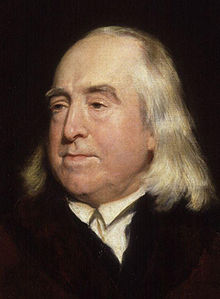The Liberalism portal
Liberalism is a political and moral philosophy based on the rights of the individual, liberty, consent of the governed, political equality, right to private property and equality before the law. Liberals espouse various and often mutually warring views depending on their understanding of these principles but generally support private property, market economies, individual rights (including civil rights and human rights), liberal democracy, secularism, rule of law, economic and political freedom, freedom of speech, freedom of the press, freedom of assembly, and freedom of religion. Liberalism is frequently cited as the dominant ideology of modern history.
Liberalism became a distinct movement in the Age of Enlightenment, gaining popularity among Western philosophers and economists. Liberalism sought to replace the norms of hereditary privilege, state religion, absolute monarchy, the divine right of kings and traditional conservatism with representative democracy, rule of law, and equality under the law. Liberals also ended mercantilist policies, royal monopolies, and other trade barriers, instead promoting free trade and marketization. Philosopher John Locke is often credited with founding liberalism as a distinct tradition based on the social contract, arguing that each man has a natural right to life, liberty and property, and governments must not violate these rights. While the British liberal tradition has emphasized expanding democracy, French liberalism has emphasized rejecting authoritarianism and is linked to nation-building. (Full article...)
Selected article -
The National Peasants' Party (also known as the National Peasant Party or National Farmers' Party; Romanian: Partidul Național Țărănesc, or Partidul Național-Țărănist, PNȚ) was an agrarian political party in the Kingdom of Romania. It was formed in 1926 through the fusion of the Romanian National Party (PNR), a conservative-regionalist group centred on Transylvania, and the Peasants' Party (PȚ), which had coalesced the left-leaning agrarian movement in the Old Kingdom and Bessarabia. The definitive PNR–PȚ merger came after a decade-long rapprochement, producing a credible contender to the dominant National Liberal Party (PNL). National Peasantists agreed on the concept of a "peasant state", which defended smallholding against state capitalism or state socialism, proposing voluntary cooperative farming as the basis for economic policy. Peasants were seen as the first defence of Romanian nationalism and of the country's monarchic regime, sometimes within a system of social corporatism. Regionally, the party expressed sympathy for Balkan federalism and rallied with the International Agrarian Bureau; internally, it championed administrative decentralization and respect for minority rights, as well as, briefly, republicanism. It remained factionalized on mainly ideological grounds, leading to a series of defections.
With its attacks on the PNL establishment, the PNȚ came to endorse an authoritarian monarchy, mounting no resistance to a conspiracy which brought Carol II on the Romanian throne in 1930. Over the following five years, Carol manoeuvred against the PNȚ, which opposed his attempts to subvert liberal democracy. PNȚ governments were in power for most of the time between 1928 and 1933, with the leader Iuliu Maniu as its longest-serving Prime Minister. Supported by the Romanian Social Democrats, they expanded Romania's welfare state, but failed to tackle the Great Depression, and organized clampdowns against radicalized workers at Lupeni and Grivița. This issue brought Maniu into conflict with the outlawed Romanian Communist Party, though the PNȚ, and in particular its left, favored a Romanian popular front. From 1935, most of the centrist wing embraced anti-fascism, outvoting the PNȚ's far-right, which split of as a Romanian Front, under Alexandru Vaida-Voevod; in that interval, the PNȚ set up pro-democratic paramilitary units, or Peasant Guards. However, the party signed a temporary cooperation agreement with the fascist Iron Guard ahead of national elections in 1937, sparking much controversy among its own voters. (Full article...)
Selected biography -
Jeremy Bentham (/ˈbɛnθəm/; 4 February 1747/8 O.S. [15 February 1748 N.S.] – 6 June 1832) was an English philosopher, jurist, and social reformer regarded as the founder of modern utilitarianism.
Bentham defined as the "fundamental axiom" of his philosophy the principle that "it is the greatest happiness of the greatest number that is the measure of right and wrong." He became a leading theorist in Anglo-American philosophy of law, and a political radical whose ideas influenced the development of welfarism. He advocated individual and economic freedoms, the separation of church and state, freedom of expression, equal rights for women, the right to divorce, and (in an unpublished essay) the decriminalising of homosexual acts. He called for the abolition of slavery, capital punishment, and physical punishment, including that of children. He has also become known as an early advocate of animal rights. Though strongly in favour of the extension of individual legal rights, he opposed the idea of natural law and natural rights (both of which are considered "divine" or "God-given" in origin), calling them "nonsense upon stilts". However, he viewed the Magna Carta as important, citing it to argue that the treatment of convicts in Australia was unlawful. Bentham was also a sharp critic of legal fictions. (Full article...)
List of selected biographies
|
|---|
Selected quote
General images
Subcategories
Related portals
WikiProjects
Topics
Recognized content
Associated Wikimedia
The following Wikimedia Foundation sister projects provide more on this subject:
-
Commons
Free media repository -
Wikibooks
Free textbooks and manuals -
Wikidata
Free knowledge base -
Wikinews
Free-content news -
Wikiquote
Collection of quotations -
Wikisource
Free-content library -
Wikiversity
Free learning tools -
Wiktionary
Dictionary and thesaurus


























































